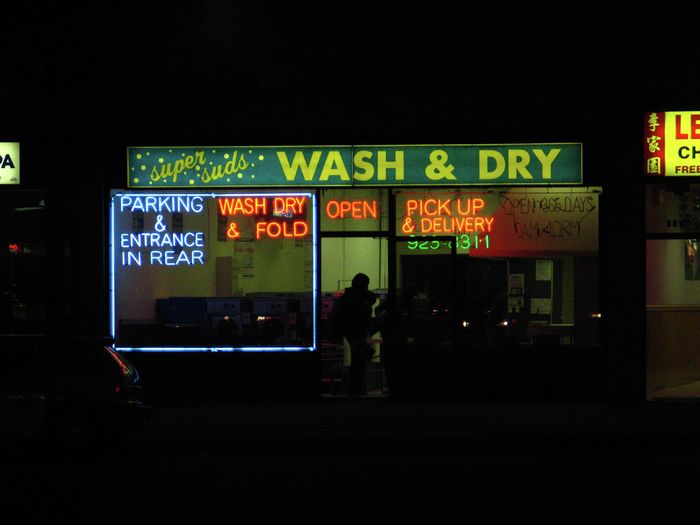Men: A tale of hollow horrors with nothing at its heart
Anna Trowby argues that Alex Garland’s latest horror story fixates on gore instead of exploring its questions around male violence

Content Note: This article contains spoilers and graphic descriptions of violence
When I first heard about Men, the latest film by the visionary writer-director Alex Garland, I was instantly compelled. The first look trailer teased a beguiling tale of a lone woman riddled with trauma and turmoil, couched in the unsettling solace of the English countryside, while the numerous ‘men’ around her — all variations of the same person — torment and harass her. Haunting images of the woman and her troubling encounters with the men in the village reverberated through my psyche long after I viewed the trailer. This had to be one of the must-see films of 2022, I thought, and I promised myself that I would watch the film as soon as it came out in cinemas.
Unfortunately, as I can now attest after having seen the film, first looks can be deceiving.
“Men is a failure for its [...] lack of contribution to the ongoing discussion concerning male violence against women”
Looking back, it should have been obvious that the film did not hold substance. The teaser was abound with montages frizzling with tension and symbolic weight but it did not signify much about the actual plot, and therein lies the film’s central problem. Men begins with a strong premise: Jessie Buckley plays a vulnerable woman who retreats to the countryside in search of quiet and solitude. To her increasing horror, she finds that all the men in the village, played by a chameleon-like Rory Kinnear, are dangerously set against her.
As a central theme, Men has a strong idea to work with and could have made an excellent horror narrative out of the protagonist’s plight. However, the plot becomes more confounding, relying on overly grotesque body horror to elicit shock from the audience. Its main failure is in its poor writing and characterisation, which then forces the film to rely on tired tropes of horror — jump scares, a woman alone in the dark, men in general being creeps — instead of exploring the inherent fear within the human mind that the film seems initially interested in.
“The film’s inability to take its own ideas seriously [...] left the audience in peals of laughter”
Nowhere is this less pronounced than in Buckley’s character. It is established at the beginning of the film that the protagonist has just come out of an abusive relationship with her recently-deceased husband (played by Paapa Essiedu), but the character is never expanded beyond this personal trauma. Although the audience witnesses her increasing instability and possible descent into delusion, it is not made clear why she views the men around her as one person. The only possible reading that the film offers is that men are bad and do bad things to women. A film that I saw at the cinema for £13 offers the same observation that a ten year old me could have made for free.
While I believe that there is a space within horror to interrogate the imbalances of power between men and women, I also believe that these ideas should be explored in relation to a cohesive narrative. One of the reasons why Ex Machina — a previous film by Alex Garland — was so enticing to watch was that it conveyed the nuances of power across different characters, especially when considering how Ava, a Caucasian-looking robot, benefits from the subservience of the female Asian robots. All the robot models are implied to be modelled on the pornified desires of the two male characters, however it is Ava that gains her freedom from the sacrifices that the female Asian robots make when they turn against their creator. Men, on the other hand, does not expand upon its central thesis in a satisfying way, leaving more room for befuddled confusion rather than an intricate exploration of gender relations in horror.
“Its main failure is in its poor writing and characterisation, which then forces the film to rely on tired tropes of horror”
As I mentioned elsewhere, another issue stems from the film’s indulgence in CGI effects. This is particularly disappointing given Garland’s sparing but careful use of special effects in his previous film, Annihilation. In one impactful scene, the jarring vision of plants and wildlife growing from a dislocated skull is powerful in its contrast between the fragility of the human body and it overpowering by the natural world. Such restraint is scant in Men. Kinnear’s face splattered onto the body of a child made me splutter with laughter. I understand the depiction of sexism as an intergenerational practice but the special effects were not done well and made the character stand out in a rather singular way, extracted from the material reality that all the other characters seem to inhabit.
However, nothing justifies the birth sequence at the end of the film. The montage of protruding limbs and jutting bones was seemingly meant to provoke discomfort from the audience, and the film ends suddenly after this gruesome spectacle. As the credits rolled, myself and several other audience members could not contain our hysterical laughter; I doubt that this was how Garland had meant for people to respond to the film. Even my cousin, a seasoned horror watcher who has seen all manner of discombobulated body parts and gory visuals, asked me what on earth I had taken her to see when we left the theatre.
Despite an excellent premise, Men is a failure for its over-reliance on gore to make up for a weak storyline, and for its lack of contribution to the ongoing discussion concerning male violence against women. Garland could have created an insightful film that explores the conflict between objective reality and subjective experience and how this tension plays out in horror. Alas, the film’s inability to take its own ideas seriously, as seen in incredulous stretches of graphic CGI imagery that left the audience in peals of laughter, belies its own intentions. Credit must be given to Rory Kinnear, who provides the only intentional comedy to the film with his multifaceted portrayal as the ‘men’. Otherwise, it may be better to take that £13 and buy a copy of Betty Friedan’s ‘The Feminine Mystique’ instead.
 News / Hundreds of Cambridge academics demand vote on fate of vet course20 February 2026
News / Hundreds of Cambridge academics demand vote on fate of vet course20 February 2026 News / Judge Business School advisor resigns over Epstein and Andrew links18 February 2026
News / Judge Business School advisor resigns over Epstein and Andrew links18 February 2026 News / University Council rescinds University Centre membership20 February 2026
News / University Council rescinds University Centre membership20 February 2026 News / Petition demands University reverse decision on vegan menu20 February 2026
News / Petition demands University reverse decision on vegan menu20 February 2026 News / Caius students fail to pass Pride flag proposal20 February 2026
News / Caius students fail to pass Pride flag proposal20 February 2026










